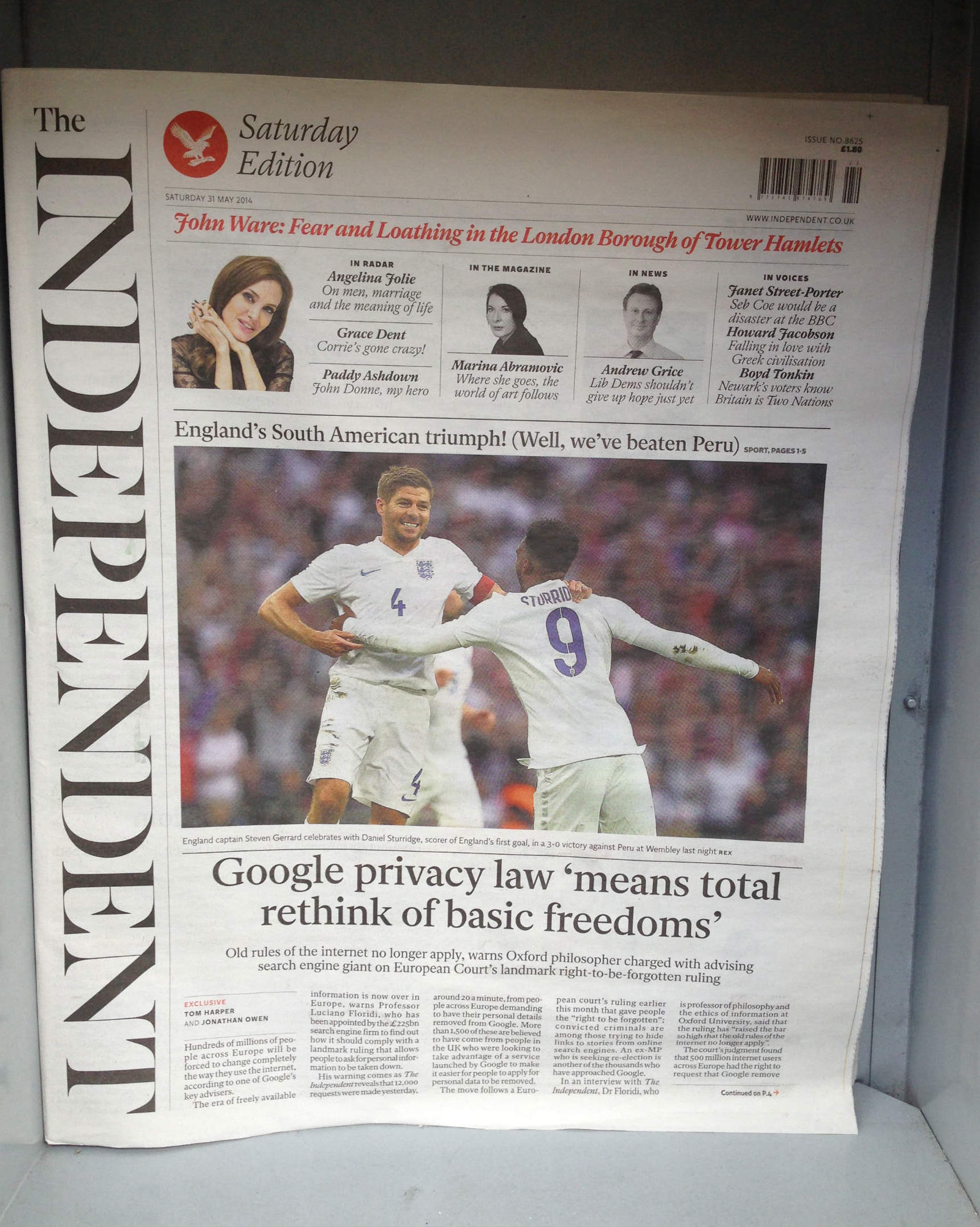Is Google trying to sabotage the “right to be forgotten”?
British journalists are in a tizzy this morning. It started yesterday, when James Ball of the Guardian wrote a gently seething comment piece about notices his paper received from Google, warning it that six articles would no longer be listed on the search engine’s European sites. This was followed by a post from the BBC’s economics editor, Robert Peston, who complained that Google had removed “this example of my journalism.”

British journalists are in a tizzy this morning. It started yesterday, when James Ball of the Guardian wrote a gently seething comment piece about notices his paper received from Google, warning it that six articles would no longer be listed on the search engine’s European sites. This was followed by a post from the BBC’s economics editor, Robert Peston, who complained that Google had removed “this example of my journalism.”
The message from both pieces was clear: As the result of a ruling in May by the European Court of Justice, Google has been forced to become ”clearly a reluctant participant in what effectively amounts to censorship,” in Ball’s words. The Court ruled last month (pdf) that Google must remove search results from individuals when asked, if the results are irrelevant, outdated, or otherwise inappropriate.
Yet read through both pieces and you find that things are more complicated than it may at first appear. Peston updated his piece later to say it seemed the subject of his original article had not requested a take-down, while others speculated that perhaps a reader who commented on the piece had asked to be forgotten. Ball for his part notes that “whether for commercial or free speech reasons (or both), [Google is] informing sites when their content is blocked – perhaps in the hope that they will write about it.”
That is a common thread this morning. On Twitter, the Financial Times’s Robert Shrimsley, a columnist and the editor of the FT’s website, pointed out that:
and
Paul Bernal, a media law lecturer at the University of East Anglia, articulated similar thoughts in a blogpost titled “Are Google intentionally overreacting to the Right to be Forgotten?”
They’re trying to say, I think, ‘you know, we were right! This ruling means censorship! This is dangerous!’ They’re also trying to get journalists like James Ball and Robert Peston to be on their side, not on the side of the CJEU – and in Ball’s case, at least, they seem to be succeeding to an extent.
The Guardian’s Chris Moran, who runs search-engine optimization for the paper, has similar thoughts:
It’s worth stating again that all of the obvious idiocy in the implementation suggests at the least that Google is far from whole-heartedly embracing the ECJ ruling.
And as Quartz reported last week, Google is certainly not being shy about the changes it is making to search results in the European Union, adding a disclaimer that results “may have been removed” even if they haven’t been. Andrew Orlowski at The Register called it two weeks ago: “The ads giant has launched a broad-based PR campaign pushing to ‘change the law’, creating a false impression that it’s being asked to make difficult decisions in vast numbers (in fact courts ultimately decide, not Google), and that the situation is burdensome for it (when in fact it can bounce all the complaints to the data protection registrar, and wait for the legal system to do all the work).”
Google’s response to a query from Quartz was as follows:
We have recently started taking action on the removals requests we’ve received after the European Court of Justice decision. This is a new and evolving process for us. We’ll continue to listen to feedback and will also work with data protection authorities and others as we comply with the ruling.